« Return to all search results
Title Search Results
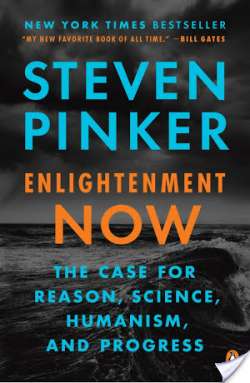
INSTANT NEW YORK TIMES BESTSELLER A NEW YORK TIMES NOTABLE BOOK OF 2018 ONE OF THE ECONOMIST'S BOOKS OF THE YEAR AND A PERFECT HOLIDAY GIFT "My new favorite book of all time." --Bill Gates If you think the world is coming to an end, think again: people are living longer, healthier, freer, and happier lives, and while our problems are formidable, the solutions lie in the Enlightenment ideal of using reason and science. Is the world really falling apart? Is the ideal of progress obsolete? In this elegant assessment of the human condition in the third millennium, cognitive scientist and public intellectual Steven Pinker urges us to step back from the gory headlines and prophecies of doom, which play to our psychological biases. Instead, follow the data: In seventy-five jaw-dropping graphs, Pinker shows that life, health, prosperity, safety, peace, knowledge, and happiness are on the rise, not just in the West, but worldwide. This progress is not the result of some cosmic force. It is a gift of the Enlightenment: the conviction that reason and science can enhance human flourishing. Far from being a naïve hope, the Enlightenment, we now know, has worked. But more than ever, it needs a vigorous defense. The Enlightenment project swims against currents of human nature--tribalism, authoritarianism, demonization, magical thinking--which demagogues are all too willing to exploit. Many commentators, committed to political, religious, or romantic ideologies, fight a rearguard action against it. The result is a corrosive fatalism and a willingness to wreck the precious institutions of liberal democracy and global cooperation. With intellectual depth and literary flair, Enlightenment Now makes the case for reason, science, and humanism: the ideals we need to confront our problems and continue our progress.
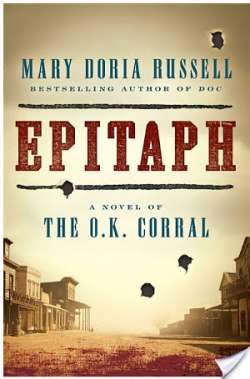
Mary Doria Russell, the bestselling, award-winning author of The Sparrow, returns with Epitaph. An American Iliad, this richly detailed and meticulously researched historical novel continues the story she began in Doc, following Wyatt Earp and Doc Holliday to Tombstone, Arizona, and to the gunfight at the O.K. Corral. A deeply divided nation. Vicious politics. A shamelessly partisan media. A president loathed by half the populace. Smuggling and gang warfare along the Mexican border. Armed citizens willing to stand their ground and take law into their own hands. . . . That was America in 1881. All those forces came to bear on the afternoon of October 26 when Doc Holliday and the Earp brothers faced off against the Clantons and the McLaurys in Tombstone, Arizona. It should have been a simple misdemeanor arrest. Thirty seconds and thirty bullets later, three officers were wounded and three citizens lay dead in the dirt. Wyatt Earp was the last man standing, the only one unscathed. The lies began before the smoke cleared, but the gunfight at the O.K. Corral would soon become central to American beliefs about the Old West. Epitaph tells Wyatt’s real story, unearthing the Homeric tragedy buried under 130 years of mythology, misrepresentation, and sheer indifference to fact. Epic and intimate, this novel gives voice to the real men and women whose lives were changed forever by those fatal thirty seconds in Tombstone. At its heart is the woman behind the myth: Josephine Sarah Marcus, who loved Wyatt Earp for forty-nine years and who carefully chipped away at the truth until she had crafted the heroic legend that would become the epitaph her husband deserved.
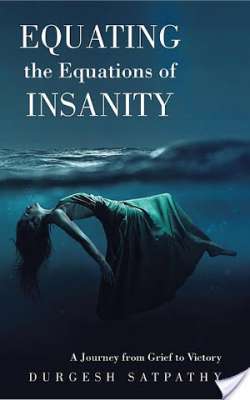
The world has observed a number of acts of brutality, like domestic violence, rape, and sexual assaults. Some of the major cases in recent past were of Elizabeth Pena, Rehtaeh Parsons, Oksana Makar, and Nirvaya, to name a few. Some victims managed to survive, but not all. They live in grief for the rest of their lives, and if not, they quit. This work is inspired from such cases where the victims have set examples by their life from grief to victory. And believe me, they can inspire you if you or someone of your near one is in grief. People commit suicide not because they are in grief but because they were unable to solve the lateral equations of insanity.

"Reader beware--you choose the scare! GIVE YOURSELF GOOSEBUMPS! Late one night you and your friends visit the old fairgrounds. They're putting up rides and booths for the annual carnival. But this year things look really different. Really odd. Really scary. The place is lit up by a hundred fiery torches. And spooky music is coming from the main tent. Then you meeting Big Al, the creepy carnival manager. He's invited you in to test some of the rides. Will you brave the terrifying Supersonic Space Coaster? Risk the horrors of the Reptile Petting Zoo? Slice through the oily waters of Booger Bog? Or confront the evil Snake Lady? The choice is yours in this scary GOOSEBUMPS adventure that's packed with over 20 super-spooky endings!"

The action is on the page, on your device, and out of this world! This multiplatform series is part sci-fi, all action-adventure. And you don’t have long to wait—six books are coming all in one year! Earth is in danger! The only thing that can save our planet are six essential elements that can fuse into a new source of clean energy. But the elements are scattered throughout the galaxy. And it’s up to the Voyagers—a team of four remarkable kids and an alien—to gather them all and return to Earth. The Voyagers' fifth stop is Planet Tundra and it may look like a giant marshmallow, but this is no winter wonderland—it’s a winter nightmare! This frozen landscape is the deadliest the Voyagers have encountered yet. Then, when the Omega team finds themselves in trouble, only Team Alpha can save them. But if the tables were turned, would the Omegas do the same? Do you have what it takes to be a Voyager? Find out at VoyagersHQ.com. From the Hardcover edition.
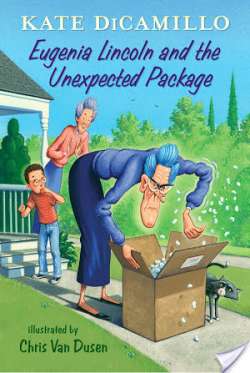
What will it take for a cynical older sister to realize she’s a born accordion player — with music in her heart? Eugenia Lincoln is a practical person with no time for gee-gaws, whoop-de-whoops, or frivolity. When an unexpected package containing an accordion arrives at her house, she is determined to have nothing to do with it. But her plans to sell the accordion, destroy the accordion, and give the accordion away all end in frustration. How can Eugenia stop being tormented by this troublesome package? Might she discover that a bit of unforeseen frivolity could be surprisingly . . . joyous?
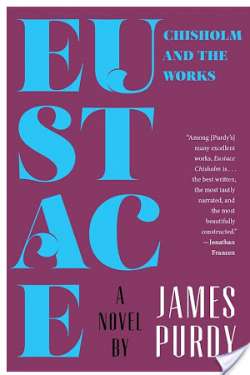
"[S]o good that almost any novel you read immediately after it will seem at least a little bit posturing." —Jonathan Franzen No James Purdy novel has dazzled contemporary writers more than this haunting tale of unrequited love in an indifferent world. A seedy depression-era boarding house in Chicago plays host to "a game of emotional chairs" (The Guardian) in a novel initially condemned for its frank depiction of abortion, homosexuality, and life on the margins of American society. A cast of characters displaced by economic distress congeal around the embittered poet Eustace Chisholm, who acts as a something of a Greek chorus for the doomed and destructive relationship that is instigated when landlord Daniel Haws falls in love with young college student Amos Ratcliffe. Building to a shocking conclusion, Eustace Chisholm and the Works is a dark and gothic look at the strange and terrible power of love amid a "psychic American landscape of deluded innocence, sexual obsession, violence, and isolation" (William Grimes, New York Times).

General Chuck Horner commanded the U.S. and allied air assets—the forces of a dozen nations—during Desert Shield and Desert Storm, and was responsible for the design and execution of one of the most devastating air campaigns in history. Never before has the Gulf air war planning, a process filled with controversy and stormy personalities, been revealed in such rich, provocative detail. And in this revised edition, General Horner looks at the current Gulf conflict—and comments on the use of air power in Iraq today.
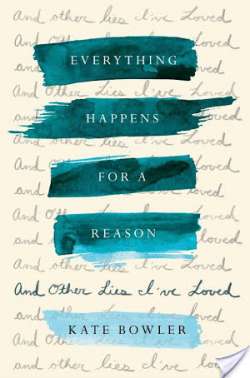
NEW YORK TIMES BESTSELLER • “A meditation on sense-making when there’s no sense to be made, on letting go when we can’t hold on, and on being unafraid even when we’re terrified.”—Lucy Kalanithi “Belongs on the shelf alongside other terrific books about this difficult subject, like Paul Kalanithi’s When Breath Becomes Air and Atul Gawande’s Being Mortal.”—Gates Notes Kate Bowler is a professor at Duke Divinity School with a modest Christian upbringing, but she specializes in the study of the prosperity gospel, a creed that sees fortune as a blessing from God and misfortune as a mark of God’s disapproval. At thirty-five, everything in her life seems to point toward “blessing.” She is thriving in her job, married to her high school sweetheart, and loves life with her newborn son. Then she is diagnosed with stage IV colon cancer. The prospect of her own mortality forces Kate to realize that she has been tacitly subscribing to the prosperity gospel, living with the conviction that she can control the shape of her life with “a surge of determination.” Even as this type of Christianity celebrates the American can-do spirit, it implies that if you “can’t do” and succumb to illness or misfortune, you are a failure. Kate is very sick, and no amount of positive thinking will shrink her tumors. What does it mean to die, she wonders, in a society that insists everything happens for a reason? Kate is stripped of this certainty only to discover that without it, life is hard but beautiful in a way it never has been before. Frank and funny, dark and wise, Kate Bowler pulls the reader deeply into her life in an account she populates affectionately with a colorful, often hilarious retinue of friends, mega-church preachers, relatives, and doctors. Everything Happens for a Reason tells her story, offering up her irreverent, hard-won observations on dying and the ways it has taught her to live. Praise for Everything Happens for a Reason “I fell hard and fast for Kate Bowler. Her writing is naked, elegant, and gripping—she’s like a Christian Joan Didion. I left Kate’s story feeling more present, more grateful, and a hell of a lot less alone. And what else is art for?”—Glennon Doyle, #1 New York Times bestselling author of Love Warrior and president of Together Rising
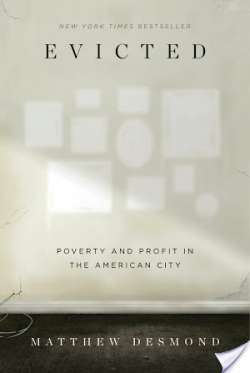
A Harvard sociologist examines the challenge of eviction as a formidable cause of poverty in America, revealing how millions of people are wrongly forced from their homes and reduced to cycles of extreme disadvantage that are reinforced by dysfunctional legal systems. Set in Milwaukee, Wisconsin.
